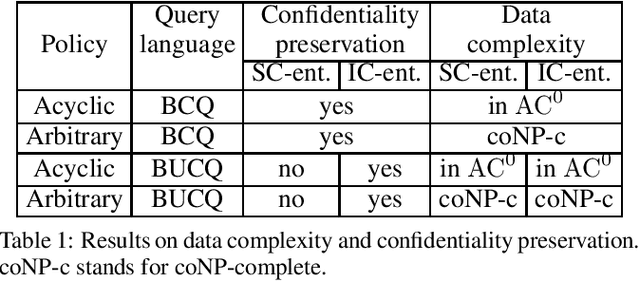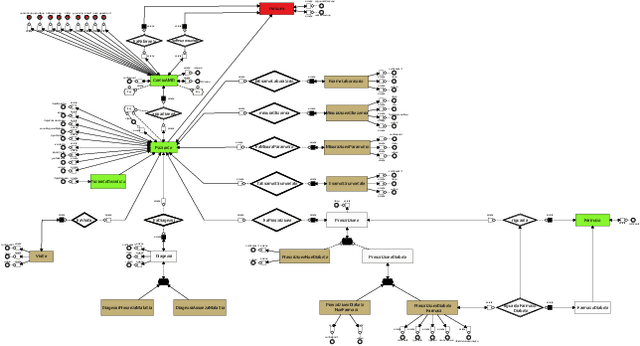Riccardo Rosati
Sapienza Università di Roma
Deep Learning Models for Robust Facial Liveness Detection
Aug 12, 2025Abstract:In the rapidly evolving landscape of digital security, biometric authentication systems, particularly facial recognition, have emerged as integral components of various security protocols. However, the reliability of these systems is compromised by sophisticated spoofing attacks, where imposters gain unauthorized access by falsifying biometric traits. Current literature reveals a concerning gap: existing liveness detection methodologies - designed to counteract these breaches - fall short against advanced spoofing tactics employing deepfakes and other artificial intelligence-driven manipulations. This study introduces a robust solution through novel deep learning models addressing the deficiencies in contemporary anti-spoofing techniques. By innovatively integrating texture analysis and reflective properties associated with genuine human traits, our models distinguish authentic presence from replicas with remarkable precision. Extensive evaluations were conducted across five diverse datasets, encompassing a wide range of attack vectors and environmental conditions. Results demonstrate substantial advancement over existing systems, with our best model (AttackNet V2.2) achieving 99.9% average accuracy when trained on combined data. Moreover, our research unveils critical insights into the behavioral patterns of impostor attacks, contributing to a more nuanced understanding of their evolving nature. The implications are profound: our models do not merely fortify the authentication processes but also instill confidence in biometric systems across various sectors reliant on secure access.
CQE under Epistemic Dependencies: Algorithms and Experiments (extended version)
Jul 23, 2025Abstract:We investigate Controlled Query Evaluation (CQE) over ontologies, where information disclosure is regulated by epistemic dependencies (EDs), a family of logical rules recently proposed for the CQE framework. In particular, we combine EDs with the notion of optimal GA censors, i.e. maximal sets of ground atoms that are entailed by the ontology and can be safely revealed. We focus on answering Boolean unions of conjunctive queries (BUCQs) with respect to the intersection of all optimal GA censors - an approach that has been shown in other contexts to ensure strong security guarantees with favorable computational behavior. First, we characterize the security of this intersection-based approach and identify a class of EDs (namely, full EDs) for which it remains safe. Then, for a subclass of EDs and for DL-Lite_R ontologies, we show that answering BUCQs in the above CQE semantics is in AC^0 in data complexity by presenting a suitable, detailed first-order rewriting algorithm. Finally, we report on experiments conducted in two different evaluation scenarios, showing the practical feasibility of our rewriting function.
Controlled Query Evaluation through Epistemic Dependencies
May 03, 2024
Abstract:In this paper, we propose the use of epistemic dependencies to express data protection policies in Controlled Query Evaluation (CQE), which is a form of confidentiality-preserving query answering over ontologies and databases. The resulting policy language goes significantly beyond those proposed in the literature on CQE so far, allowing for very rich and practically interesting forms of data protection rules. We show the expressive abilities of our framework and study the data complexity of CQE for (unions of) conjunctive queries when ontologies are specified in the Description Logic DL-Lite_R. Interestingly, while we show that the problem is in general intractable, we prove tractability for the case of acyclic epistemic dependencies by providing a suitable query rewriting algorithm. The latter result paves the way towards the implementation and practical application of this new approach to CQE.
Consistent Query Answering for Existential Rules under Tuple-Deletion Semantics
Jan 11, 2024Abstract:We study consistent query answering over knowledge bases expressed by existential rules. Specifically, we establish the data complexity of consistent query answering and repair checking under tuple-deletion semantics for a general class of disjunctive existential rules and for several subclasses thereof (acyclic, linear, full, guarded, and sticky). In particular, we identify several cases in which the above problems are tractable or even first-order rewritable, and present new query rewriting techniques that can be the basis for practical inconsistency-tolerant query answering systems.
A hybrid feature learning approach based on convolutional kernels for ATM fault prediction using event-log data
May 17, 2023Abstract:Predictive Maintenance (PdM) methods aim to facilitate the scheduling of maintenance work before equipment failure. In this context, detecting early faults in automated teller machines (ATMs) has become increasingly important since these machines are susceptible to various types of unpredictable failures. ATMs track execution status by generating massive event-log data that collect system messages unrelated to the failure event. Predicting machine failure based on event logs poses additional challenges, mainly in extracting features that might represent sequences of events indicating impending failures. Accordingly, feature learning approaches are currently being used in PdM, where informative features are learned automatically from minimally processed sensor data. However, a gap remains to be seen on how these approaches can be exploited for deriving relevant features from event-log-based data. To fill this gap, we present a predictive model based on a convolutional kernel (MiniROCKET and HYDRA) to extract features from the original event-log data and a linear classifier to classify the sample based on the learned features. The proposed methodology is applied to a significant real-world collected dataset. Experimental results demonstrated how one of the proposed convolutional kernels (i.e. HYDRA) exhibited the best classification performance (accuracy of 0.759 and AUC of 0.693). In addition, statistical analysis revealed that the HYDRA and MiniROCKET models significantly overcome one of the established state-of-the-art approaches in time series classification (InceptionTime), and three non-temporal ML methods from the literature. The predictive model was integrated into a container-based decision support system to support operators in the timely maintenance of ATMs.
CQE in OWL 2 QL: A "Longest Honeymoon" Approach
Jul 22, 2022Abstract:Controlled Query Evaluation (CQE) has been recently studied in the context of Semantic Web ontologies. The goal of CQE is concealing some query answers so as to prevent external users from inferring confidential information. In general, there exist multiple, mutually incomparable ways of concealing answers, and previous CQE approaches choose in advance which answers are visible and which are not. In this paper, instead, we study a dynamic CQE method, namely, we propose to alter the answer to the current query based on the evaluation of previous ones. We aim at a system that, besides being able to protect confidential data, is maximally cooperative, which intuitively means that it answers affirmatively to as many queries as possible; it achieves this goal by delaying answer modifications as much as possible. We also show that the behavior we get cannot be intensionally simulated through a static approach, independent of query history. Interestingly, for OWL 2 QL ontologies and policy expressed through denials, query evaluation under our semantics is first-order rewritable, and thus in AC0 in data complexity. This paves the way for the development of practical algorithms, which we also preliminarily discuss in the paper.
AI-based Data Preparation and Data Analytics in Healthcare: The Case of Diabetes
Jun 13, 2022
Abstract:The Associazione Medici Diabetologi (AMD) collects and manages one of the largest worldwide-available collections of diabetic patient records, also known as the AMD database. This paper presents the initial results of an ongoing project whose focus is the application of Artificial Intelligence and Machine Learning techniques for conceptualizing, cleaning, and analyzing such an important and valuable dataset, with the goal of providing predictive insights to better support diabetologists in their diagnostic and therapeutic choices.
CQE in Description Logics Through Instance Indistinguishability (extended version)
Apr 24, 2020Abstract:We study privacy-preserving query answering in Description Logics (DLs). Specifically, we consider the approach of controlled query evaluation (CQE) based on the notion of instance indistinguishability. We derive data complexity results for query answering over DL-Lite$_{\mathcal{R}}$ ontologies, through a comparison with an alternative, existing confidentiality-preserving approach to CQE. Finally, we identify a semantically well-founded notion of approximated query answering for CQE, and prove that, for DL-Lite$_{\mathcal{R}}$ ontologies, this form of CQE is tractable with respect to data complexity and is first-order rewritable, i.e., it is always reducible to the evaluation of a first-order query over the data instance.
 Add to Chrome
Add to Chrome Add to Firefox
Add to Firefox Add to Edge
Add to Edge